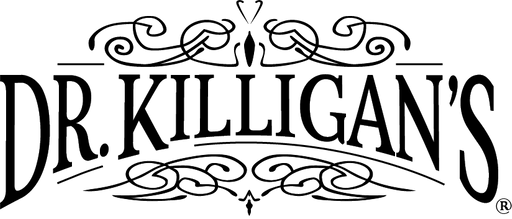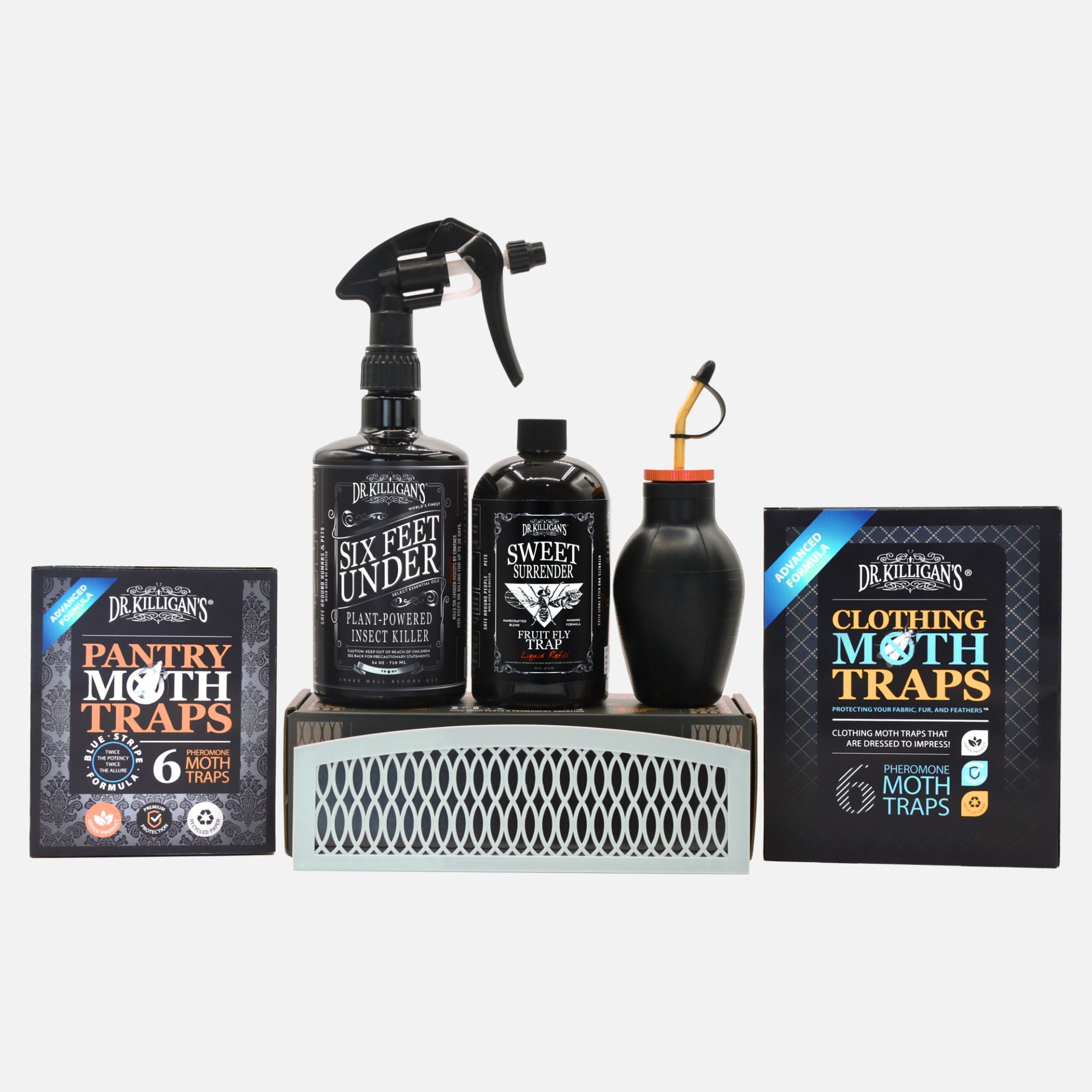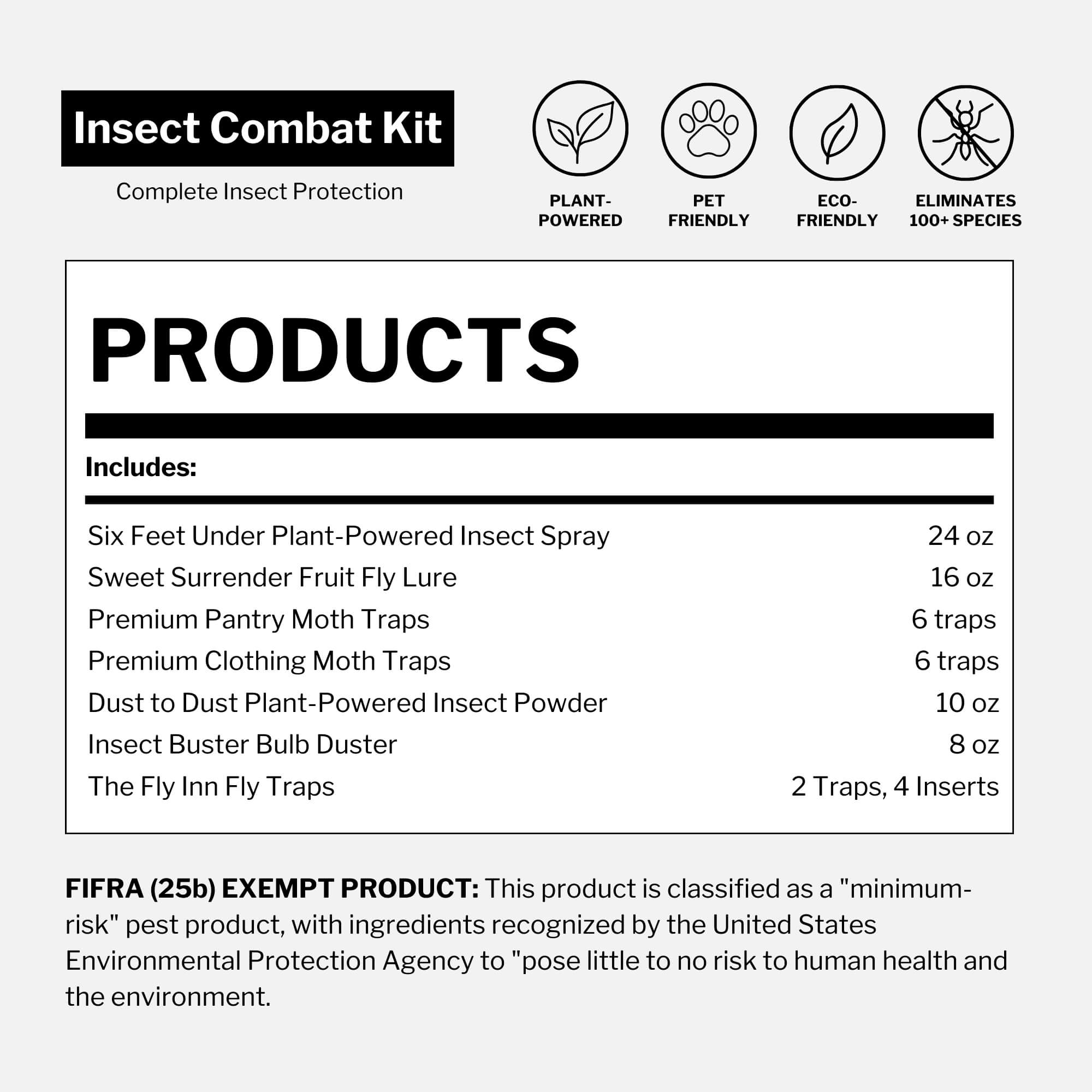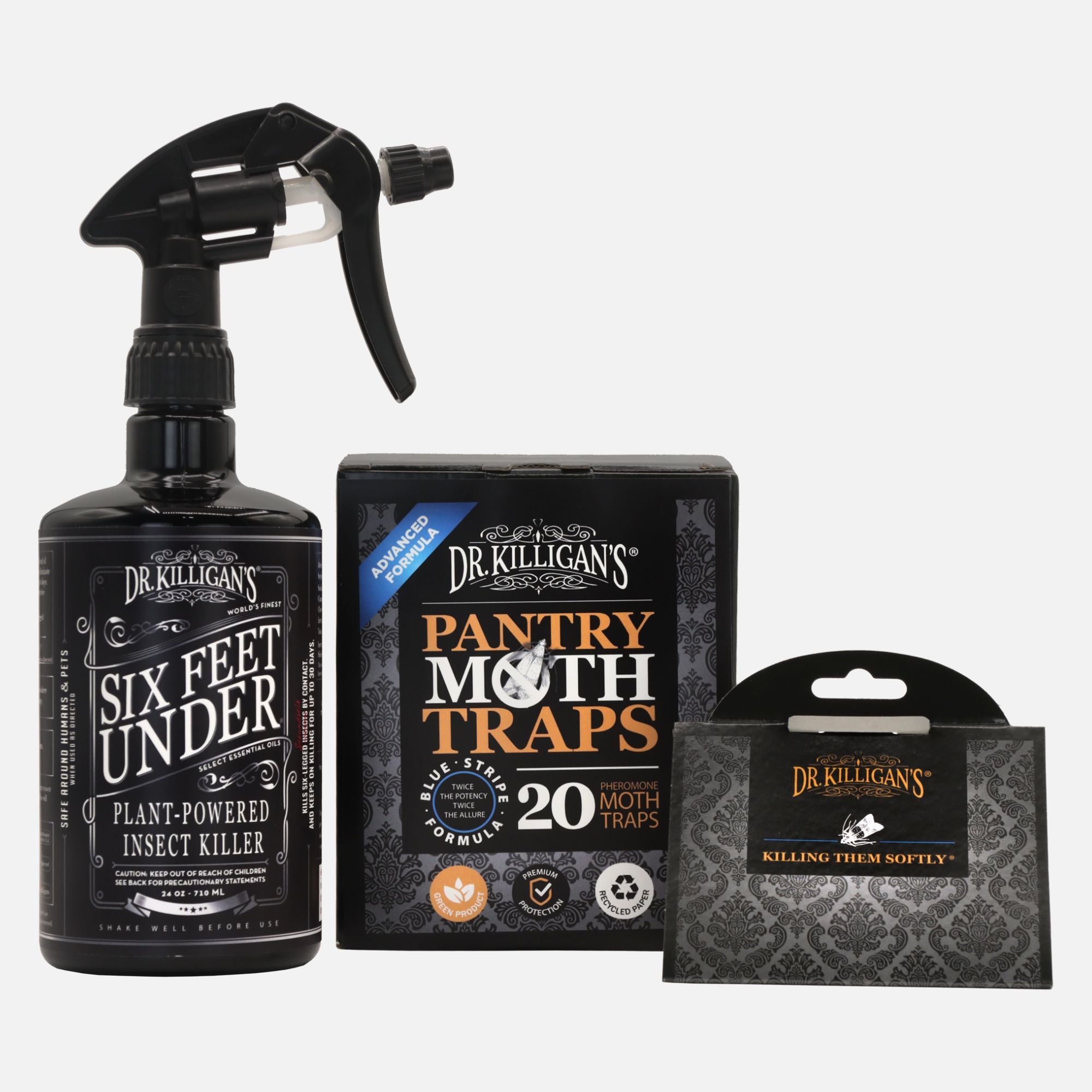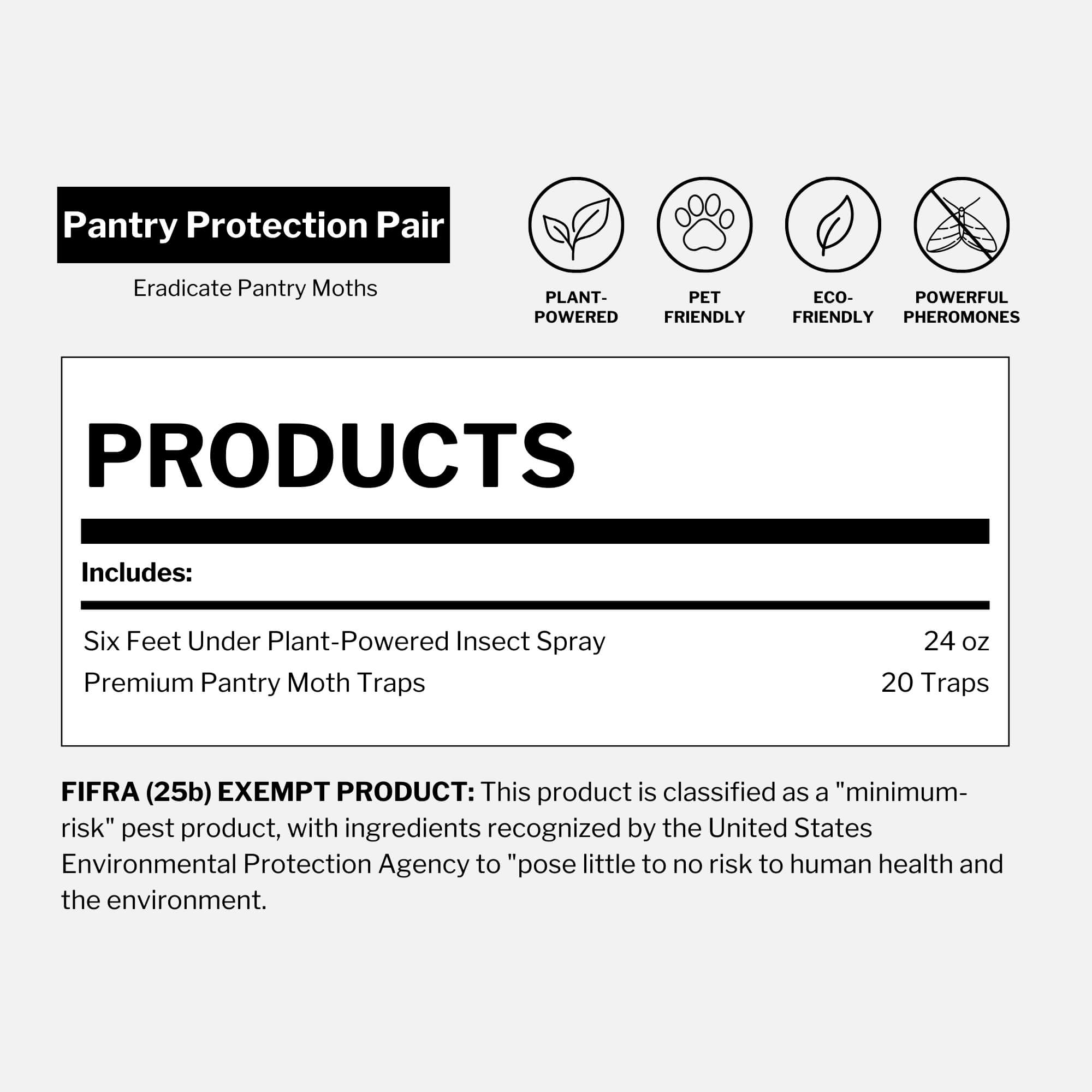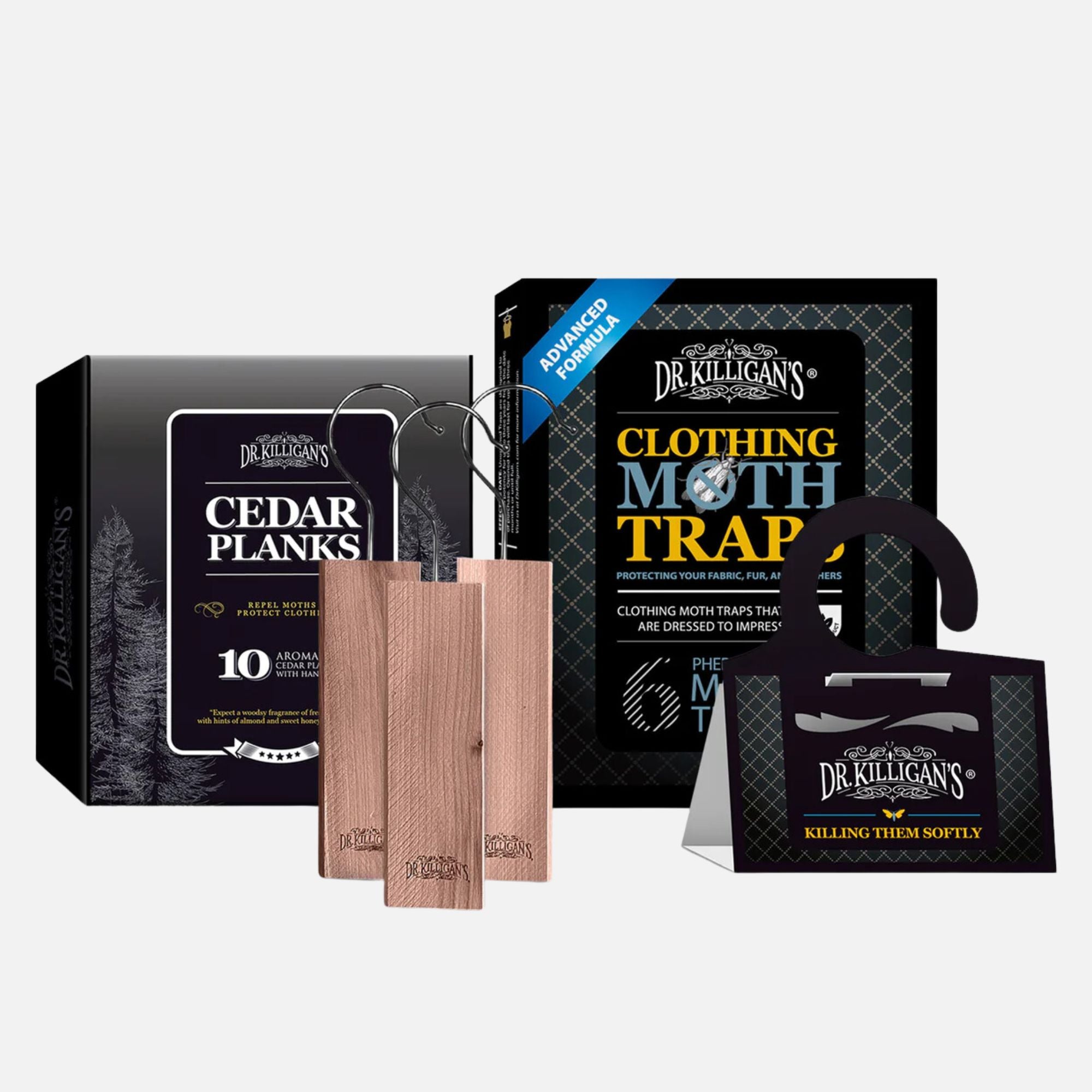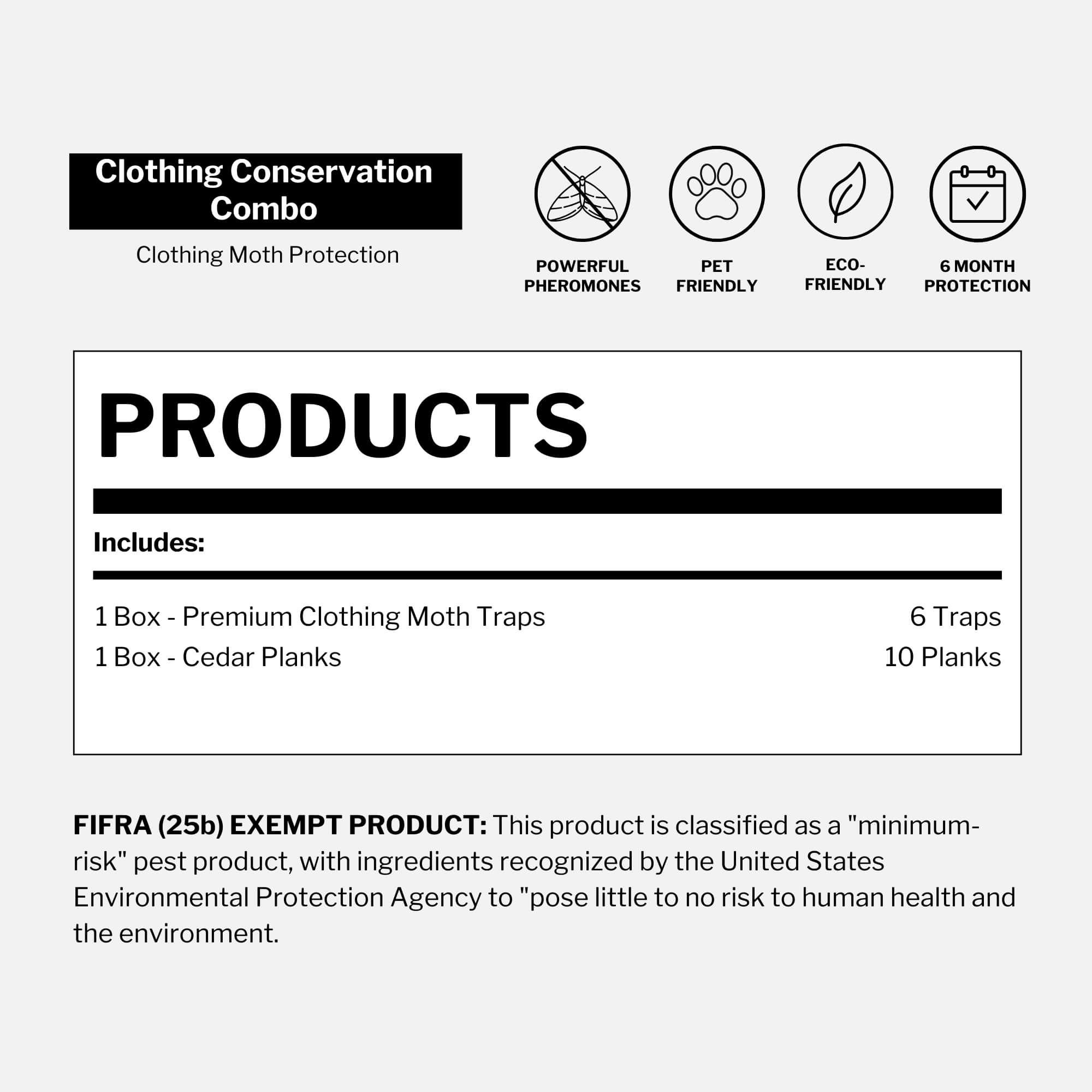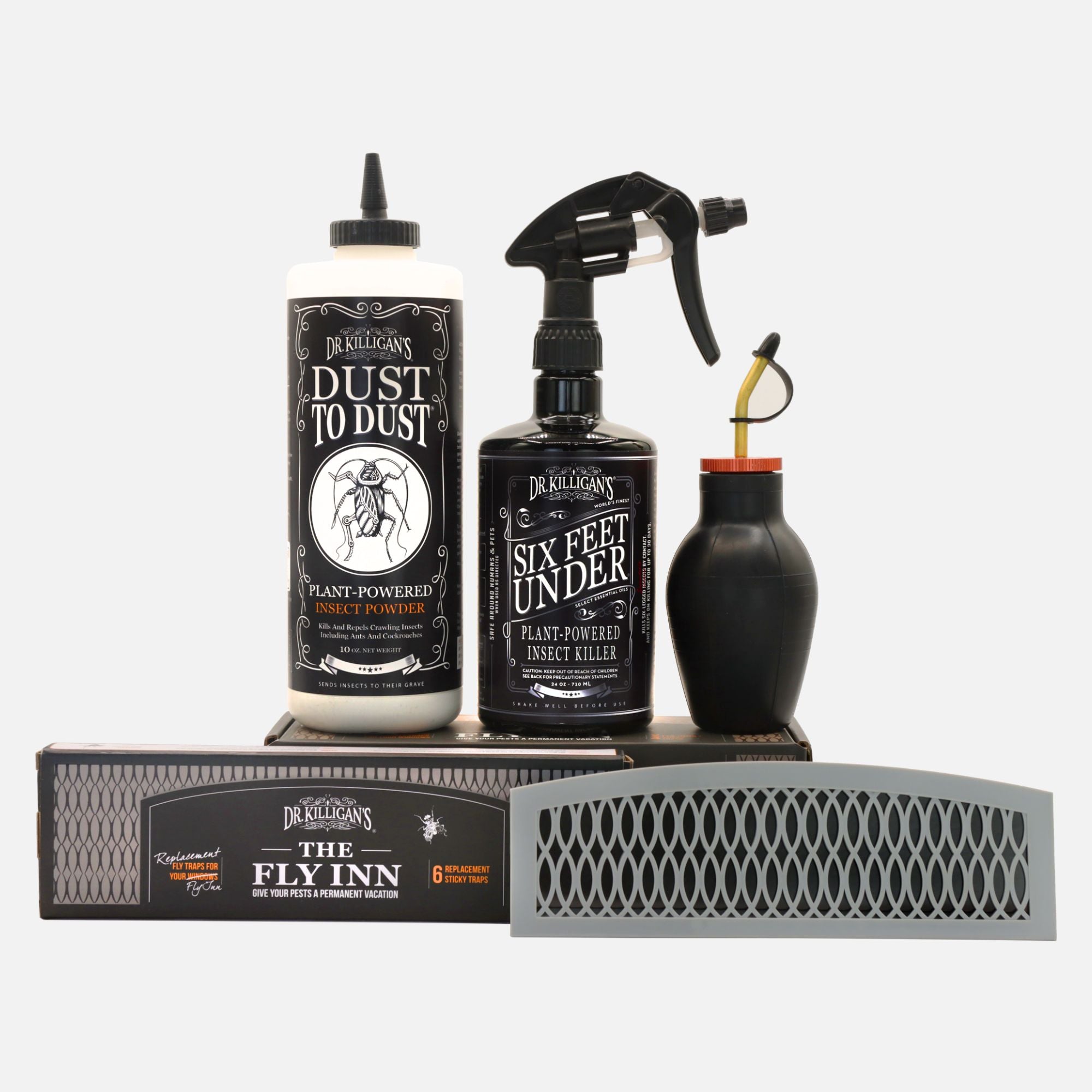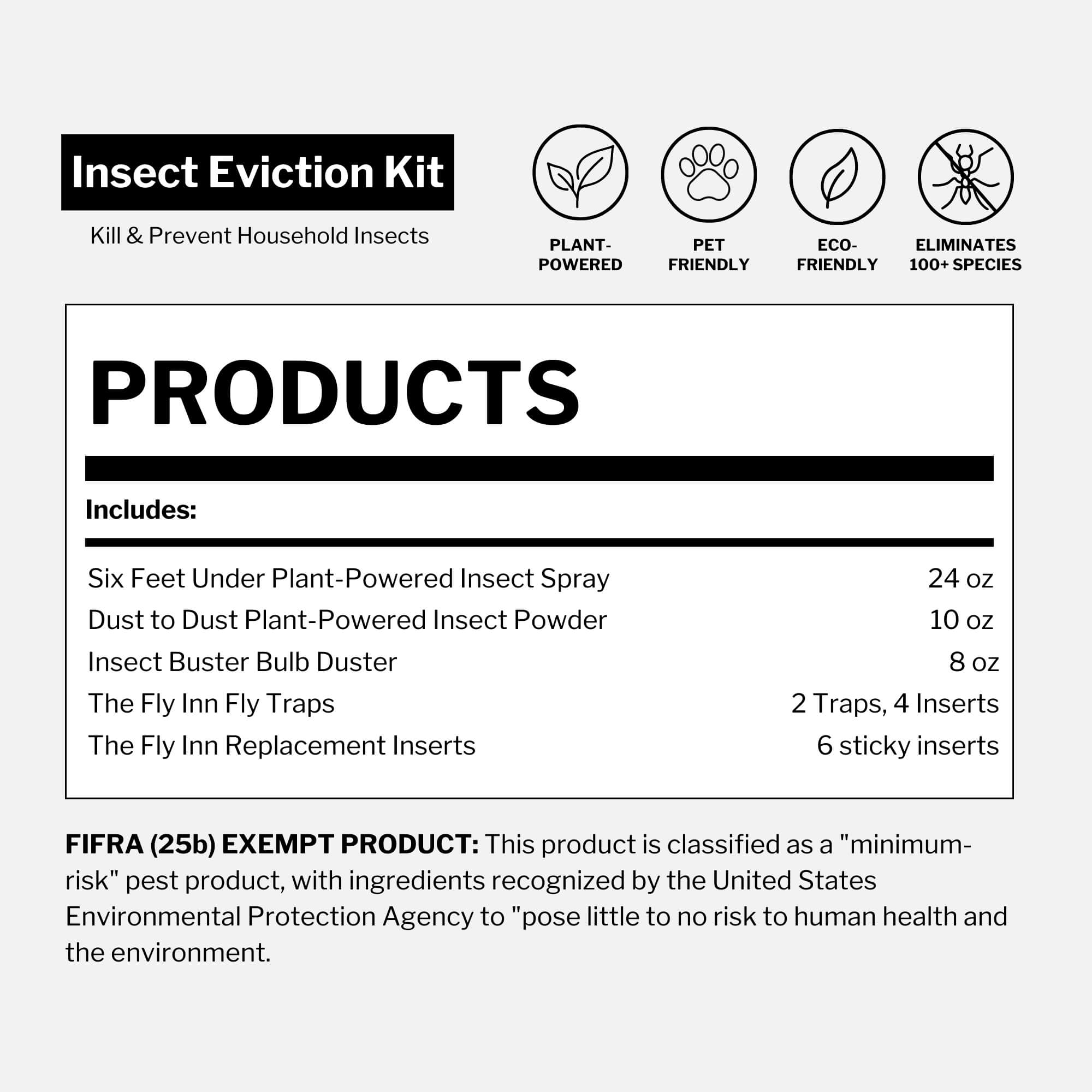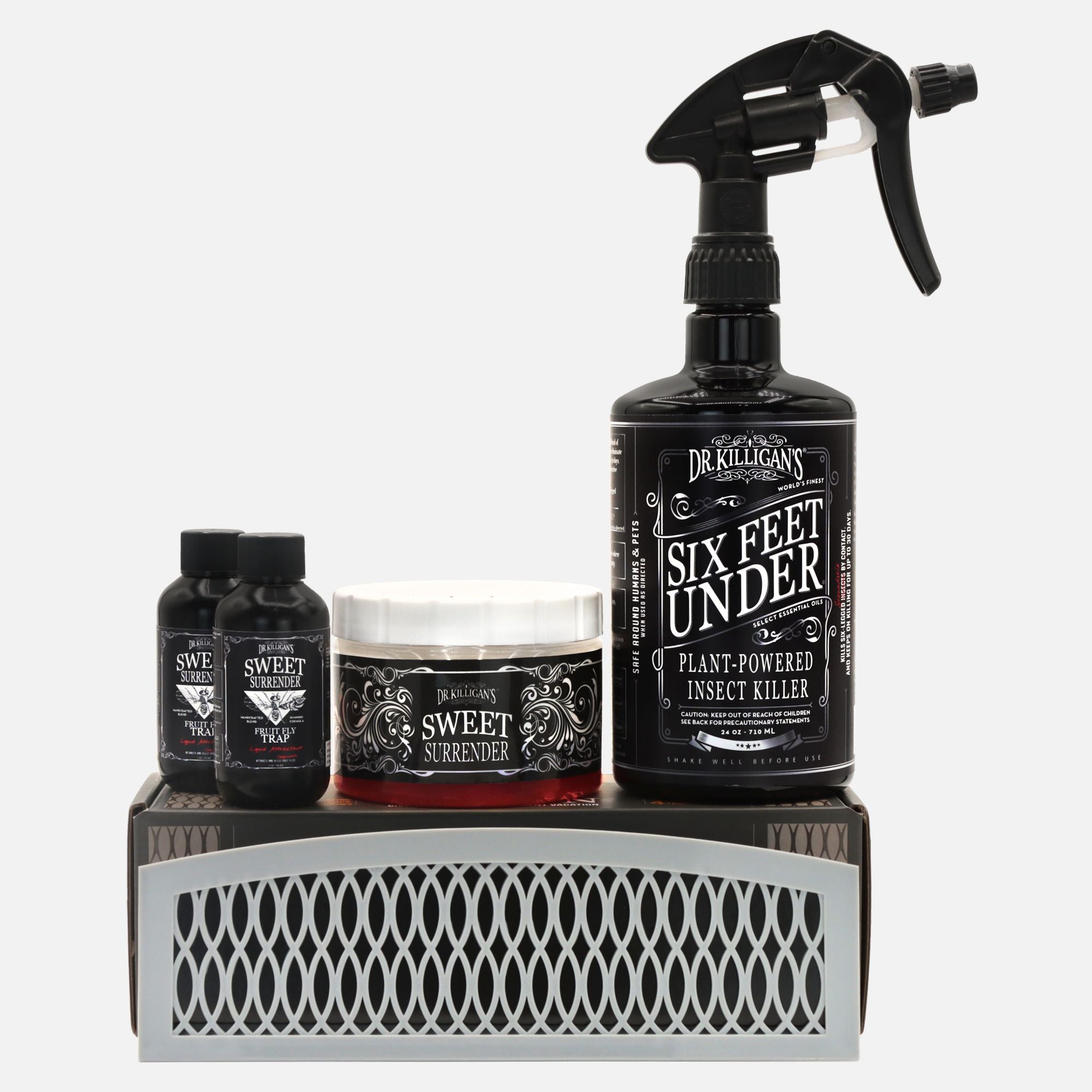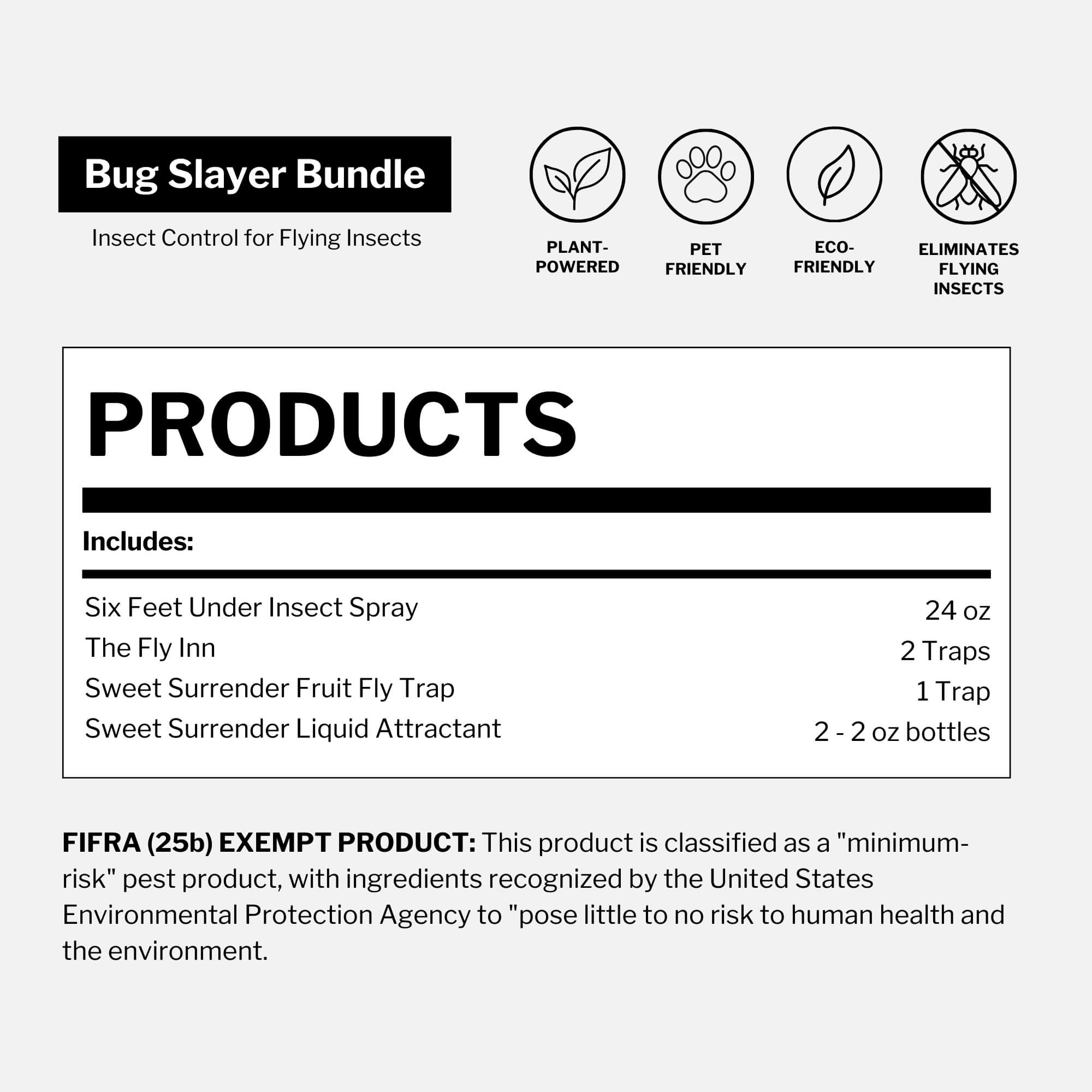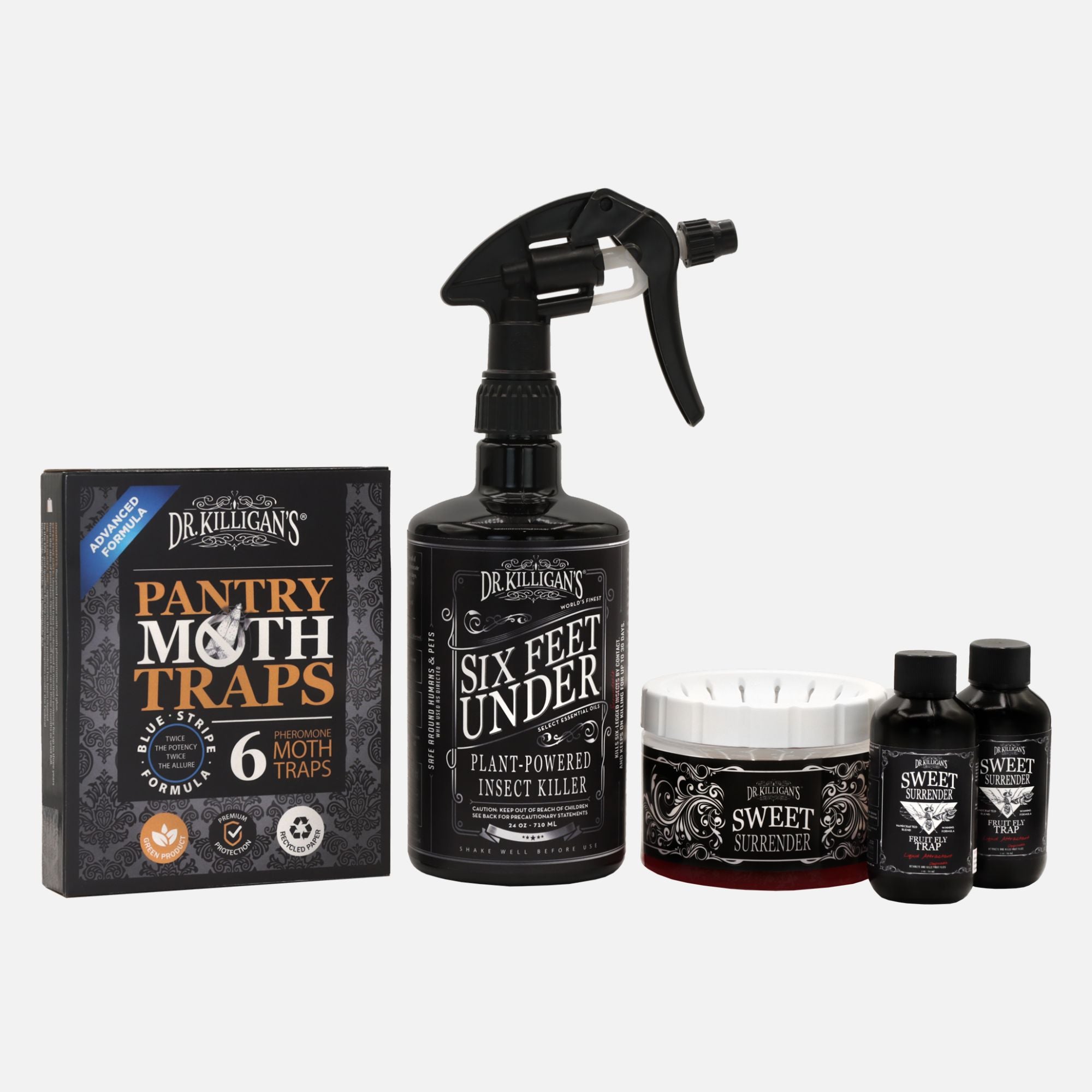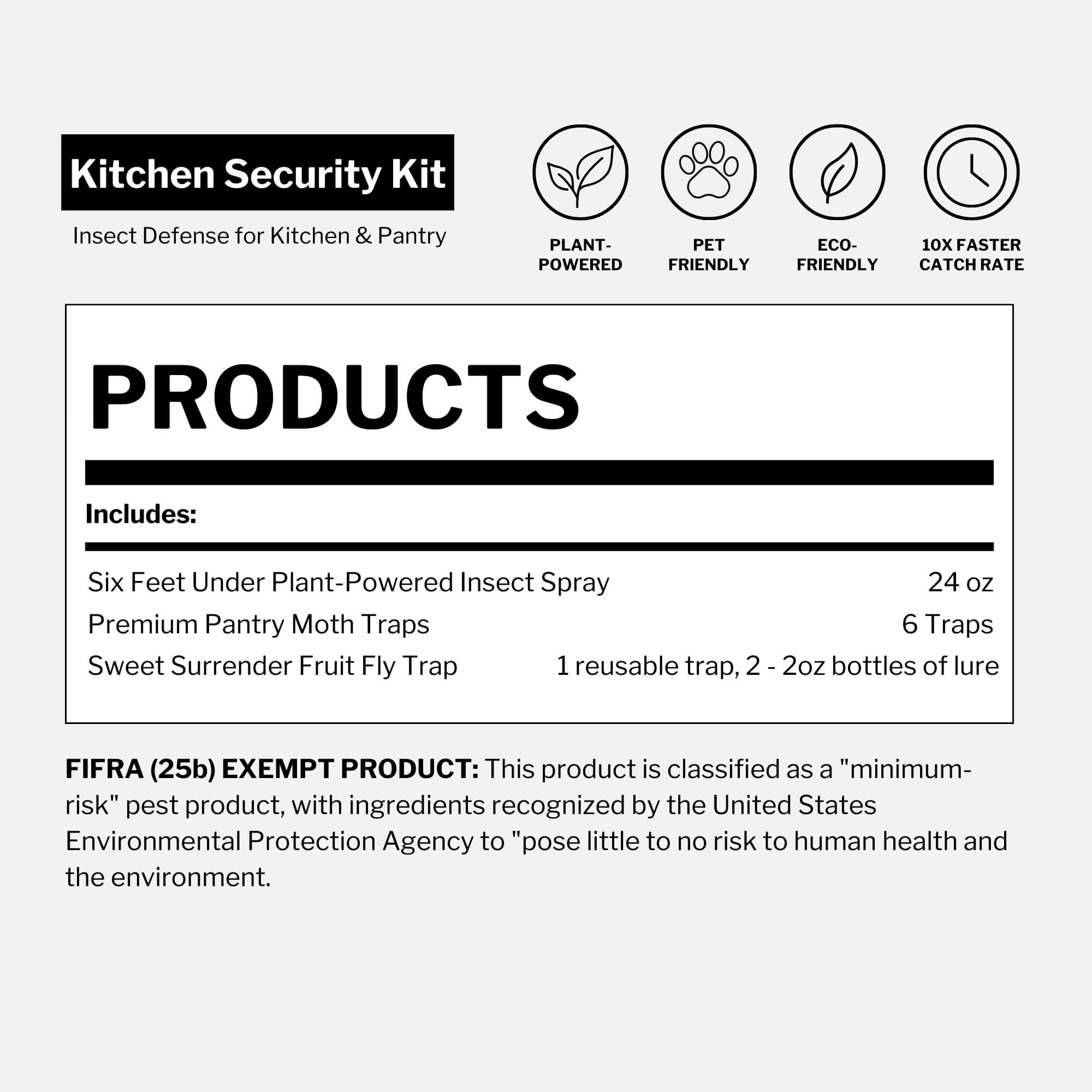Updated on April 30th, 2025
In pest control, Dr. Killigan's 'Killing Them Softly' approach is about more than just getting rid of bugs. We make products that are safe when used as directed and don't harm the world around us.
Targeted pest control with essential oils and mechanical defense

Our products are designed with your health, the safety of pets and the environment in mind. Traditional pest control methods can introduce harmful chemicals that disrupt ecosystems, pose risks to wildlife and lead to health issues like respiratory problems. In contrast, we prioritize safety through several key practices:
- Mechanical control methods: We use advanced techniques that physically impact pests without chemical toxicity, reducing health risks and preventing pesticide resistance.
- Mechanical-kill action: Our formulas target pests’ physical systems—such as their exoskeletons—ensuring pests can't build immunity over time.
- Full ingredient transparency: We disclose all active and inactive ingredients on our product labels, empowering you to make informed choices for your home.
- Minimum risk ingredients (25(b) exempt): We formulate our products with EPA-designated minimum risk ingredients that qualify for 25(b) exemption—ensuring safety without compromising effectiveness.
- Plastic material standards: We avoid the use of fluorinated plastics, eliminating hidden PFAS exposure risks from packaging and applicators.
- Careful ingredient sourcing: We select ingredients known for their safety, avoiding harmful substances.
In addition to these safety-first practices, we harness the natural power of essential oils.
Essential oils that repel bugs: Safer alternatives to chemical sprays
By using essential oils instead of synthetic chemicals, we minimize pesticide residues and protect your home—both indoors and out. These oils naturally repel and eliminate pests, offering a safer, plant-powered alternative to conventional pesticides. They are core to our mechanical control methods, reinforcing the 'Killing Them Softly' philosophy.
If you're wondering what oil is good against bugs, research and real-world results show that specific essential oils can effectively repel and control a wide range of pests — without synthetic chemicals.
-
Cinnamon oil (in Six Feet Under): Acts as a natural insecticide with proven effectiveness against pests like weevils and flour beetles. Studies also highlight its ability to prevent egg-laying and provide multi-layered protection beyond simple deterrence.

- Clove oil (in Six Feet Under): Contains powerful compounds— like eugenol and beta-caryophyllene—which repel and kill pests like ants, cockroaches, flies and earwigs. It is also effective against stored-grain pests and other insects—both indoors and outdoors.
- Rosemary oil (in Dust to Dust): Disrupts insects' nervous and respiratory systems, interfering with their pheromone communication. Proven to cause 100% mortality in pests like rice weevils and spider mites.
- Peppermint oil (in Dust to Dust and Six Feet Under: Barricade): Known for its ability to repel a wide range of pests, including beetles and stink bugs. Studies show it acts as a natural fumigant and is as effective as DEET for repelling mosquitoes, with high mortality rates in pests like cockroaches.
- Virginia cedarwood oil (in Cedar Chip Canisters and Cedar Ward Spray): Naturally repels clothes moths, carpet beetles and other fiber-loving pests by disrupting their sense of smell and deterring egg-laying. Cedarwood oil’s effectiveness against keratin-feeding insects makes it a trusted defense for protecting wool, silk and leather.
Customers seeking an EO for bug repellent will find that our powerful essential oils that repel bugs form the foundation of our plant-powered pest control philosophy.
When considering the best essential oils to repel bugs, ingredients like peppermint, cedarwood and clove oil—featured in our products—stand out for their proven efficacy and safety.
How to switch to essential oils and plant-based pest control
Ready to make the shift? Here's a step-by-step guide to help you transition confidently to safer pest control methods for your home:
1. Evaluate your current pest control methods: Take inventory of the pest control products you currently use. Look closely at labels and ingredient lists.

- Watch for red flags like organophosphates, pyrethroids, neonicotinoids and generic terms like "inert ingredients" or "fragrance," which can hide toxic chemicals.
- If the ingredients aren't fully listed, that's a sign to reconsider the product.
2. Identify safer alternatives: Seek out pest control products that are transparent about ingredients and avoid synthetic chemicals. Focus on mechanical controls and plant-powered options that physically impact pests without toxic residues.
3. Invest in mechanical control devicesStart replacing chemical treatments with physical solutions. Explore mechanical and plant-powered traps like:
- The Fly Inn Flying Insect Trap for flies and other flying insects
- Cedar Chip Canisters for natural moth defense without chemical mothballs
- Sweet Surrender Fruit Fly Trap for eliminating fruit flies
4. Learn about natural pest deterrents: Educate yourself on the pest-repelling power of essential oils. Our blog offers resources on how oils like rosemary, peppermint, cinnamon, clove and cedarwood defend against various pests without synthetic risks. For in-depth guidance, check out:

- The benefits of rosemary oil and how to use it
- Kiss bugs goodbye: Your complete guide to using peppermint oil for pests
- The many benefits of cinnamon and how to use it
- The benefits of clove oil
- Insect-repelling power of eastern red cedar wood
5. Start small and build confidence: Begin with one room or one pest problem. For example:
- Replace an outdoor chemical spray with a long-lasting plant-powered option like Six Feet Under: Barricade to prevent pests from entering your home
- Use peppermint oil along baseboards to deter ants
- Set up a moth trap in your closet
The risks of chemical pesticides—and why natural alternatives matter
To understand why safer pest control matters, it’s important to recognize the dangers posed by conventional methods still widely used in homes today.
Chemicals such as organophosphates and pyrethrins—previously mentioned—are widely applied in residential pest control, yet both are linked to serious health and environmental concerns. According to the National Library of Medicine, pyrethroids can cause harmful effects through both acute and chronic exposure. Organophosphates, meanwhile, are neurotoxic and have been associated with developmental and cognitive effects—particularly in children.

Long-term exposure has been associated with nervous system disruption, hormonal imbalances and increased cancer risk. The EPA further notes that organophosphates and pyrethroids can trigger skin irritation, respiratory issues and developmental toxicity.
Our products entirely avoid these risks, offering safe, plant-powered alternatives that target pests without endangering your health, family or planet.
Mechanical pest control: smarter, safer, more sustainable

Mechanical control is central to our commitment to targeted pest solutions that support ecological balance. While pests can be a nuisance indoors, insects also play vital roles in pollination and natural pest control. That’s why our approach targets harmful intruders—leaving beneficial insects and the environment unharmed.
- Safe for home use: From simple tools to targeted solutions like the Insect Buster Bulb Duster, our methods provide practical, chemical-free pest defense.
- Eco-conscious materials: Products like our Cedar Planks, made from pure eastern red cedar, avoid the soil and air contamination of conventional treatments like mothballs.
- Lasting effectiveness: Solutions like our Pantry Moth Traps deliver continuous protection by physically trapping pests—no chemical adaptation risks.
- Smart dual-action design: Our Six Feet Under Plant-Powered Insect Spray uses soybean oil to break down insect exoskeletons—a powerful effect that pests can’t develop resistance to.
Why essential oils and mechanical control are the future of pest control

If you're searching for the best essential oils to repel bugs or wondering what oil is good against pests in your home, the answer lies in combining nature’s intelligence with targeted, chemical-free methods. At Dr. Killigan’s, we’re proud to lead that movement—with plant-powered ingredients, third-party-tested safety and real-world results.
Our essential oil-based solutions prove that pest control doesn’t need to rely on harmful chemicals. With mechanical control methods and complete ingredient transparency, we’re setting a new standard for what safe, effective pest defense looks like.
Dr. Killigan’s offers more than a product—it’s a philosophy. One that prioritizes your well-being, supports a healthier planet and quietly, powerfully, gets the job done.
At Dr. Killigan’s, the ‘Killing Them Softly’ philosophy drives every product we create—offering effective, plant-powered pest control that puts your health and the environment first. Our approach innovates beyond traditional methods by focusing on plant-powered, mechanical techniques, offering safer, more advanced solutions for pest control.
